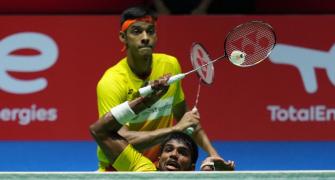It's Tuesday afternoon. Delhi's heat is unbearable and I plan to book an air-conditioned radio cab for myself. Alas, I don't get anywhere beyond imagining what those plush seats must feel like because, 30 minutes later, I'm negotiating prices with an irate auto driver.
None of the radio cab services (I called leading players like Mega Cabs and Easy Cabs) could provide me a ride from ITO to Saket, saying the earliest they could send me a car was two hours.
An hour later, I face the same problem: this time for commuting from from Saket to Greater Kailash. So what's the whole deal with these call-taxis, especially as most players claim to have no less than 250 cabs each on Delhi's roads?
"At any given point of time, not all cabs will be on the roads," reveals C B Singh, GM, customer relations, Mega Cabs, the oldest player in the radio-cab market (since 2001). With 280-odd vehicles (the company uses models like Indigo and Marina from Tata Motors), Singh says that realistically, he has no more than 80-100 cabs plying at a time.
That's because most companies face an acute shortage of drivers. "Our training process alone takes 7-10 days. Training the staff in English, getting drivers who are familiar with Delhi's roads and screening them is a mammoth task," says Singh.
He adds, "While the government has instructed radio cab companies to add 500 cabs to the roads by the end of this year, it needs to realistically look at manpower too."
The capital investment in setting up a radio cab service (cars??) is around Rs 6 crore (Rs 60 million)."Getting a fleet of cars is not that difficult. Getting drivers is a big task, especially now, as most trained drivers get poached by rival companies," laughs Singh, who says that drivers earn Rs 8,000-12,000 depending on the number of years they've been in service.
Most experts in the industry agree that there is an imbalance in demand-supply as far as radio cabs are concerned.
According to Rajiv K Vij, CEO, Carzonrent India, which has a total of 250 taxis - Easy Cabs uses Maruti's Esteem model - and plans to add another 450 in another two months and 5,000 before the Commonwealth Games in 2010: "It is impossible to keep up with the demand at all times. We are fielding as many as 10,000 calls every day from customers," says a source from Easy Cabs, which launched in 2006.
Easy Cabs is also planning to introduce credit card swipe machines in its cars by the end of this month.
Orix Auto Infrastructure Services (OAIS), a joint venture between Orix Corporation, Japan, and Infrastructure Leasing and Financial Services Limited (IL&FS), a week-old entrant in radio cab services in Delhi under the Delhi Cabs brand, will also be installing such credit card swipe machines.
"It's too early to give details, but we promise to provide a world-class public car hire system to Delhiites with our service," says Neeraj Kumar, CEO, OAIS.
But first, you have to get one in the first place.
Book your ride
Easy Cabs: 43434343
Mega Cabs: 41414141 and 1929
Delhi Cabs: 44333222
Approximate number of calls made to companies: 8,000-10,000
Peak hour rush time: 8.30 am-11.00 am and 5.30 pm-10 pm
Radio cabs' features include GPRS technology, AC, swipe card machines (only Easy Cabs has it so far), digital fare meters and printers to issue bills
A tip: It's safer to call at least one hour in advance








